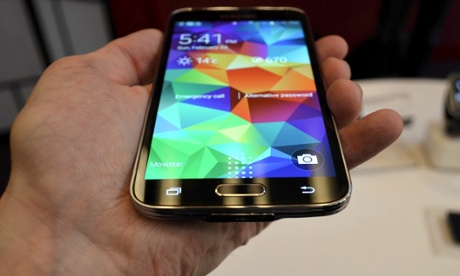
Samsung will miss out on launch-day sales of its new Galaxy S5 smartphone in its key home market of South Korea, as mobile operators there face a 45-day government sales ban.
With the Galaxy S5’s launch scheduled for 11 April, the ban - which affects both new subscriptions and upgrades - will be in force at the country’s two largest operators, SK Telecom and KT. The smallest, LG UPlus, with about 18m subscribers, will have a 16-day window before a ban is reinstated from 27 April to 18 May.
Imposed by the government as a penalty for breaching local laws subsiding phones by more than 270,000 won (£152), the ban prevents the operators from selling or upgrading phones for various periods between 13 March and 19 May.
“South Korea is the ninth biggest smartphone market in the world and it is the fifth biggest market for Samsung,” said Francisco Jeronimo, European mobile devices research director for IDC. “Last year it represented 4.5% of Samsung’s total smartphone shipments, so this will definitely have an impact.”
Data from research company Mediacells forecasts sales of around 16m smartphones in South Korea this year - an average of 1.3m per month - in a country where total smartphone ownership is at 70%. Samsung has claimed to have two-thirds of the South Korean mobile phone market, a claim backed up by Flurry Analytics in November 2013. That means a sales ban on smartphones could disproportionately affect it.
However Jeronimo expects the sales ban to have only a short-term effect, as it will only postpone the handset’s launch there. He thinks it is unlikely to have an impact on its overall success.
“The impact would be much stronger if only Samsung devices were suspended in South Korea, which is not the case. All vendors will face the same problem,” said Jeronimo.
But the ban will hit Galaxy S5 sales to end users in the crucial first month, which is important for publicity purposes. Samsung has previously publicised the speed with which generations of its flagship Galaxy phones have sold; that might now lose momentum.
It’s unclear whether the operators will build stock of the S5 during the ban, which extends for almost a month beyond the launch. But that might allow Samsung to legitimately claim that the handsets have been “sold” because it will not have financial responsibility for them.
The Galaxy S5 replaces Samsung’s previous flagship Android smartphone, the S4, which had failed to live up to sales expectations. Analysts reckon that its sales only kept pace with those of 2012’s S3, despite the smartphone market growing by about 50% in the same period. Apple’s iPhone sales grew by 13% to 153m in 2013.
Sweetening the deal
The S5 has an integrated heart rate monitor and fingerprint scanner. Samsung also announced last week that it will bundle around £300 worth of applications and services, including 50GB of Dropbox storage space for two years, three months of Evernote’s premium service and several fitness apps and services.
The ban on sales was handed down by the South Korean telecoms regulator on Friday last week, with the nation’s biggest operator SK Telecom blocked from 5 April to 19 May, the second-largest KT banned from 12 March to 26 April, and the smaller LG UPlus banned from 13 March to 4 April and 27 April to 18 May. The three companies were previously banned from sales on the same grounds in January 2013.
Samsung refused to comment on the potential impact of the ban.
• Samsung Galaxy S5: can fitness and fingerprint scanning beat Apple’s iPhone 5S?

